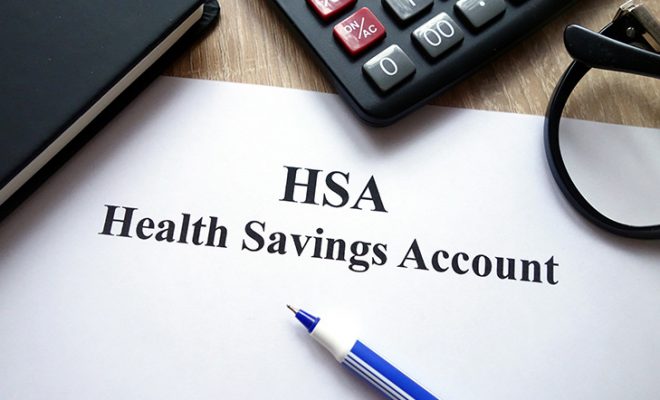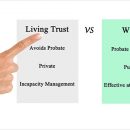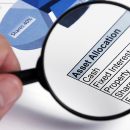4 Tips to Manage and Maximize Your Health Savings Account for Retirement

You might be eagerly waiting to begin your retirement life. However, you can only be at peace during those years if you plan well beforehand. While it is critical to structure your retirement investments cautiously, you cannot ignore your healthcare arrangements. According to the HealthView Services report, a healthy female retiree at the age of 55 years will likely spend $13,165 in annual medical costs by the time she turns 65 years. The expenses rise further to $16,635 in case the retiree has a medical condition such as diabetes. With such enormous medical costs, it is important to plan your retirement years with extreme prudence. A crucial component of your retirement healthcare is a health savings account (HSA). HSAs are beneficial while you are working as well as in your post-working years. Moreover, they come with multiple tax advantages.
Here are four tips for managing and maximizing your health savings account (HSA):
- Be sure of your maximum annual contributionsAn HSA can be a highly beneficial medical fund if you begin investing in it early in life. An HSA allows you to make tax-deductible contributions every year. Each year the Internal Revenue Service (IRS) announces new upper limits for HSA as it does similarly for other retirement savings accounts like an Individual Retirement Account (IRA) and a 401(k) account. For 2020, the IRS set the upper limit of self-only HSA aid to $3,550 and for a family to $7,100. In the Revenue Procedure 2020-32, new limits were also announced for the calendar year 2021. For self-only coverage, you can pay up to $3,600 (+$50 from 2019), and for family, you can contribute up to $7,200 (+$100).
You can participate in an HSA plan funded by the employer or have a separate plan altogether. For the former, some companies make a contributory share and deduct the employee’s contribution from the before tax pay-checks. But if you are self-employed or in case your employer does not offer an HSA, you can still make contributions up to the specified limit and claim tax benefits on them. In addition to the tax-free donations, the interest you earn on your HSA funds is eligible for a tax deduction. So, whether you are funding your HSA account for yourself or your family, be sure to maximize your annual contributions. This is important not only to get maximum tax benefits but also to be able to afford future healthcare costs. - Make the most of catch-up contributions
Getting older has rare benefits, and in relation with an HSA, it does offer you specific privileges. All tax-advantaged accounts like a 401(k) plan, a Roth IRA, an HSA, etc. allow people beyond a certain age to contribute over and above their maximum limit. This additional money is known as a ‘catch-up’ contribution. In case of an HSA, if you are over 55 years of age by the end of the tax year, you can make the regular permissible contribution, along with an extra $1,000 per year. This will provide you with a lucrative opportunity to make good use of your dollars for the future.According to a Fidelity Retiree Health Care Cost Estimate, an average healthy 65-year-old couple in 2020 will need $295,000 to cover healthcare costs in retirement. This is exclusive of long-term care expenses. With such significant costs expected in the future, it is best to save as much as possible in your HSA. Moreover, once you enroll in Medicare, by the age of 65 years, you would no longer be able to make any allocation to an HSA. But you can use the HSA money to cover your Medicare premiums, deductibles, and more. In case, there are any funds left in the HSA, they will still grow tax-free and can also be carried forward from one year to another. Hence, it is vital to make use of this ten-year window (55-65 years) to make more of ‘catch-up’ contributions. If you save $1,000 each year for these ten years, you will have nearly $13,200 of tax-free money (annual growth rate of 5%) by the time you are 65 years old. You can use this additional sum to cover more of your medical expenses, which will rise with time. - Choose to invest your HSA funds
The money in your HSA account is primarily to support the medical expenses of the present as well as of the future. But an HSA is far from a regular savings account, even though it initially starts as one and also fetches interest in a similar manner. However, once a specific limit is attained, the HSA account becomes an investment. With this feature, you can grow your money tax-free by choosing investments like mutual funds, exchange-traded funds (ETFs), stocks, etc. This can potentially be a great way to grow your wealth free from tax liabilities for eligible healthcare costs. When you convert your HSA account into an investment one, you can also select how you want your savings to be allocated among the listed mutual funds or other market instruments.Once the account is created, you have complete flexibility to change your decision, transfer funds, and further diversify or rebalance your HSA account. However, ideally your HSA investment strategy should be similar to that of your other retirement savings accounts, namely a 401(k) account or an IRA. Therefore, it is important to keep your risk appetite in mind and concentrate on the overall diversification of your portfolio. In some cases, employers also offer easy availability of an administrator, but the ultimate investment choice is yours. Remember that your HSA savings, growth, and profits are tax-free only if they are withdrawn for medical purposes. For all other non-medical withdrawals, the IRS levies a tax penalty. Further, if the money is taken out from an HSA account before your official retirement age of 65 years, an additional 20% penalty is levied. - Do not touch your HSA unless necessary
HSA is more importantly, an investment tool and then a retirement healthcare support. The triple tax advantage, tax-free growth, contributions, and withdrawals make this one of the most coveted retirement investment options. Hence, to ensure that you make the most of this account, you must not touch your savings unless it is required. Do not spend your HSA funds during your working years. Instead, pay your bills from your pocket, if needed. The IRS permits you to keep your money in an HSA for as long as needed. And it does not mandate any compulsory distributions.By waiting to draw out your HSA money, you allow it the time to grow and maximize potential investment returns. Moreover, whenever you choose to take out your HSA earnings, ensure to use it for qualified medical purposes to avoid the penalty. Be careful with the timing of your withdrawal. Do not initiate action during a market downturn because that would push you to sell your investments at a lower cost.
To sum it up
If you are new to the HSA concept, take time to understand your eligibility and how much you can contribute each year. In all, if you work efficiently and study each aspect in detail, you can easily use your HSA funds to cover all your medical expenses in the golden years of your life. Alternatively, you can also seek expert financial guidance to reap substantial tax savings while setting aside reserves for healthcare.










